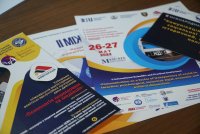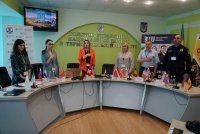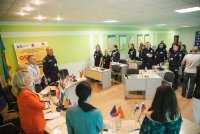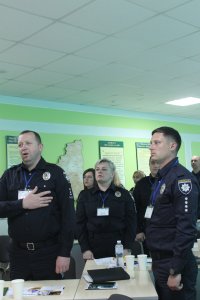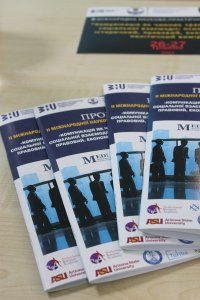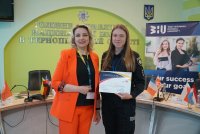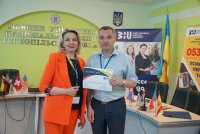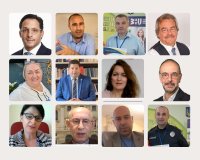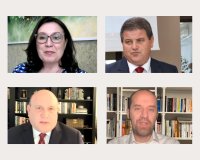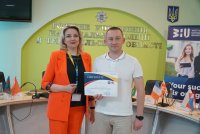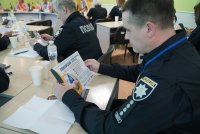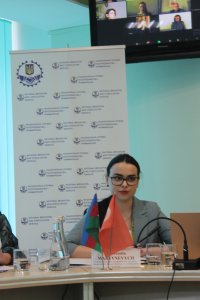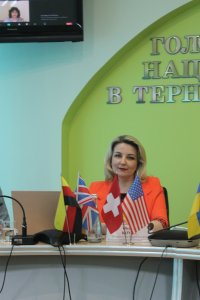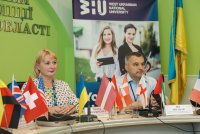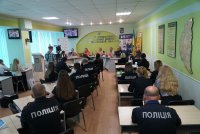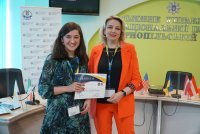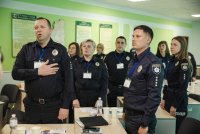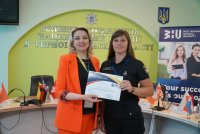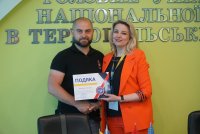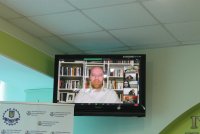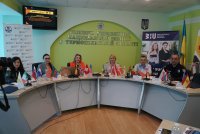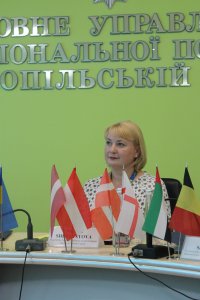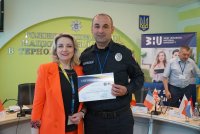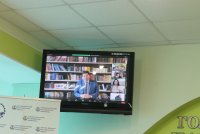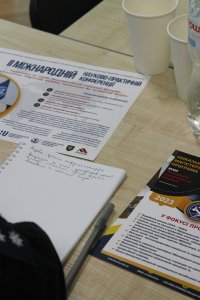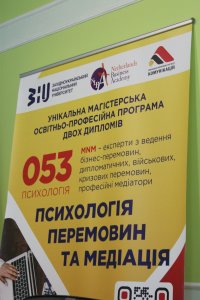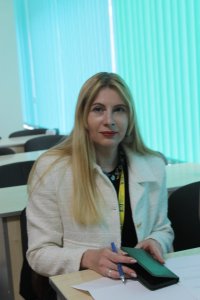2nd International Scientific and Practical Conference "Communication as a Factor of Transparency of Social Interaction: Psychological, Historical, Legal and Political Dimensions"
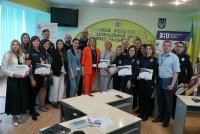 The Second International Scientific and Practical Conference "Communication as a Factor of Transparency of Social Interaction: Psychological, Historical, Legal and Political Dimensions" was recently held, organized by the staff of the Education and Research Institute of Communications of WUNU in cooperation with the National Mediation and Reconciliation Service and the Main Department of the National Police in Ternopil Oblast.
The Second International Scientific and Practical Conference "Communication as a Factor of Transparency of Social Interaction: Psychological, Historical, Legal and Political Dimensions" was recently held, organized by the staff of the Education and Research Institute of Communications of WUNU in cooperation with the National Mediation and Reconciliation Service and the Main Department of the National Police in Ternopil Oblast.
The co-organizers included: The Netherlands Business Academy (Netherlands), University of Warmia and Mazury (Ełk branch, Poland), Batumi Shota Rustaveli State University (Georgia), Shepherd University (USA), Arizona State University (USA), Catholic University of San Antonio (Spain), Turiba University (Latvia), Matej Bel University (Slovakia), International Mediation Association (Netherlands), Negotiation Club (UK), Center for Global Communication (USA), Georgian Mediators Association (Georgia), International Negotiation Training and Research Association INTRA (international network).
It is gratifying that the conference was attended by Ukrainian and foreign scholars, as well as practitioners from 60 countries and organizations from Ukraine, Poland, the Netherlands, the United Kingdom, the United States, Germany, Switzerland, Denmark, Latvia, Georgia, France, Cyprus, Italy, Spain, Slovakia, Slovenia, Austria, the United Arab Emirates, Belgium, Turkey, Croatia, India, and the Czech Republic.
The conference was held on the premises of the Main Department of the National Police in Ternopil Oblast.
The event was moderated by Oksana Koval, Director of the Education and Research Institute of Communications. Professional interpretation was provided by Viktoriia Korobii.
The participants observed a minute of silence to honor the cherished memory, resilience and heroic deeds of the soldiers who died while performing combat missions to protect the state sovereignty and territorial integrity of Ukraine, as well as civilians who died as a result of the armed aggression of the Russian Federation against Ukraine.
Opening the conference, Svitlana Zapara, First Deputy Head of the National Mediation and Reconciliation Service, emphasized the relevance of the topic of the scientific event, co-organized by the NMRS, and noted the great need for highly qualified specialists in conflict resolution during and after the war in Ukraine.
The program of the plenary session and scientific and practical platforms continued with discussion panels.
The event was attended by police officers - heads of structural units of the Ternopil Oblast National Police, whose activities are directly related to communication, crisis negotiation and dialogue policing.
One of the main topics of discussion was the war in Ukraine. In particular, the participants discussed diplomatic etiquette and protocol in times of war, the impact of the full-scale war in Ukraine on the academic mobility of university students; the importance of media literacy in times of war; negotiations in times of war; negotiations during the armed conflict on the return of illegally displaced and deported children - theory and practice; mediation in the transitional period (after the war, when there will be a problem of reconciliation); psychological aspects of the impact of art on a person during military aggression; ways to restore women's and children's personal resources during the war; features of constructive interpersonal interaction in the context of post-traumatic rehabilitation of combatants.
The discussion was fruitful and productive, with participants developing new thoughts and ideas and discussing opportunities to address pressing issues of the day. A collection of abstracts and a collective monograph will be published based on the results of the conference.

